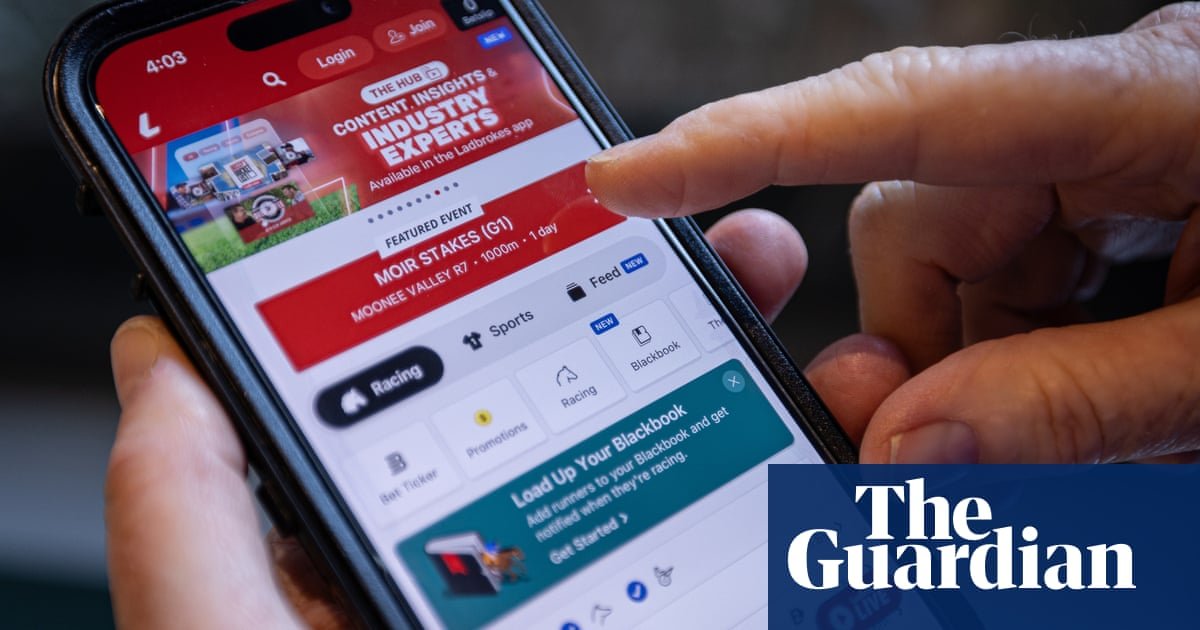A leading anti-gambling advocate has refused to sign a contentious non-disclosure agreement in order to attend a briefing with the government about gambling advertising reforms.
After the government was roundly criticised for consulting with betting companies ahead of gambling harm advocates about the reforms, the Alliance for Gambling Reform was among several organisations that on Monday evening received an invitation to a government briefing.
Attached to the invitation to Friday’s briefing was a 12-page NDA, a legally binding document to keep information confidential.
“We’re not going to sign it,” Tim Costello, the chief advocate with the alliance, told Guardian Australia on Tuesday.
“How can we sign something on an issue that’s already in the press? We are very happy to be briefed, but no we will not be signing a non-disclosure agreement.”
Costello was referring to leaks published on Sunday and Monday – confirmed by Guardian Australia – suggesting Labor would not impose a total ban on gambling ads.
Instead, Labor’s proposal, according to leaks, is to ban gambling ads online, during televised sports matches and an hour either side of live sport. Labor would also cap two ads an hour during general TV programming.
The proposal, yet to be signed off by cabinet, falls short of the blanket ban advocated by the bipartisan parliamentary inquiry chaired by the late Labor MP Peta Murphy and a chorus of public health experts
Costello’s alliance wrote to the communications minister, Michelle Rowland, to ask why anti-gambling groups were finding out information about reforms from the press.
In response, the group received the invitation and NDA, Costello said.
“I’ve been working in gambling reform for 30 years … never once have I been asked to sign an NDA.”
The Albanese government has been criticised for applying non-disclosure agreements to a range of confidential consultations including the national disability insurance scheme, religious discrimination bill and environmental reforms.
The chief executive of Alliance for Gambling Reform, Martin Thomas, said signing an NDA was a serious transparency concern because if the looming reforms were not evidence-based he wanted to speak freely about it.
“We’re a very small organisation, and to try to get the legal advice to determine whether we’re able to still speak out or not on the issues that are in the public interest at short notice is difficult,” Thomas said.
“We just don’t want a ridiculous situation where if elements of the policy are made public, somehow we’re stopped from being able to speak about them. We can understand that some elements may need to be confidential, but this NDA does appear to be over the top.”
A spokesperson for the Christian community services organisation Wesley Mission confirmed they got an invitation with an NDA requirement to attend.
“We are currently considering options,” they said.
Representatives from media, sports and gambling companies who have already met with government signed NDAs.
after newsletter promotion
Seen by the Guardian, the NDA reads: “The Commonwealth wishes to enter into confidential consultation discussions with the Confidant to inform the development of proposed Commonwealth reforms to gambling advertising.”
A spokesperson from Rowland’s office did not respond to questions about the NDA, the meeting agenda or those attending.
“The government continues to engage with stakeholders regarding the recommendations from the online wagering inquiry as we formulate our response,” the spokesperson said.
Public health professors Samantha Thomas, from Deakin University, and Mike Daube, with Curtin University, on Monday wrote to Rowland airing concerns “the government’s planned response will fall far short of the inquiry’s recommendations”.
Thomas, who leads work researching the impact of gambling advertising on children, said she had not yet been invited to Friday’s briefing.
If she is invited, Thomas said she would not sign an NDA.
“What if we went into a meeting and saw that the policy would have a detrimental impact on the health and wellbeing of young people? How could we then say to children: ‘I’m sorry we can’t speak up for you because we signed an NDA.’”
Daube said “in more than 50 years of work on tobacco control and other issues” he could not ever recall being asked to sign a non-disclosure agreement.
The independent MP Zoe Daniel, who has called for increased parliamentary transparency, said the minister had waited “until the 11th hour to issue selective invitations to stakeholders with legitimate, evidence-based concerns about the health and other impacts of gambling advertising and then demanded they sign non-disclosure agreements”.
Daniel was sceptical about the timing of the invites.
“The invitation may have been the result of media attention and public pressure in regard to the government’s flawed and already decided intentions, rather than a genuine intent to engage,” she said.
“Because if what the media is reporting is true, the gambling giants and other companies that make money from gambling already know what to expect.”
